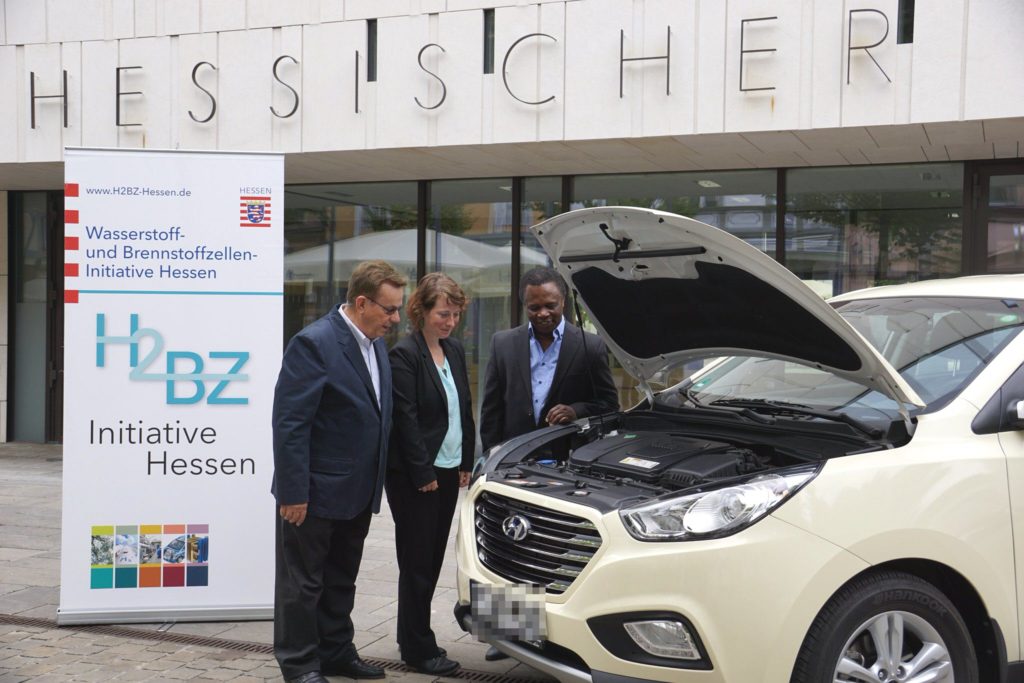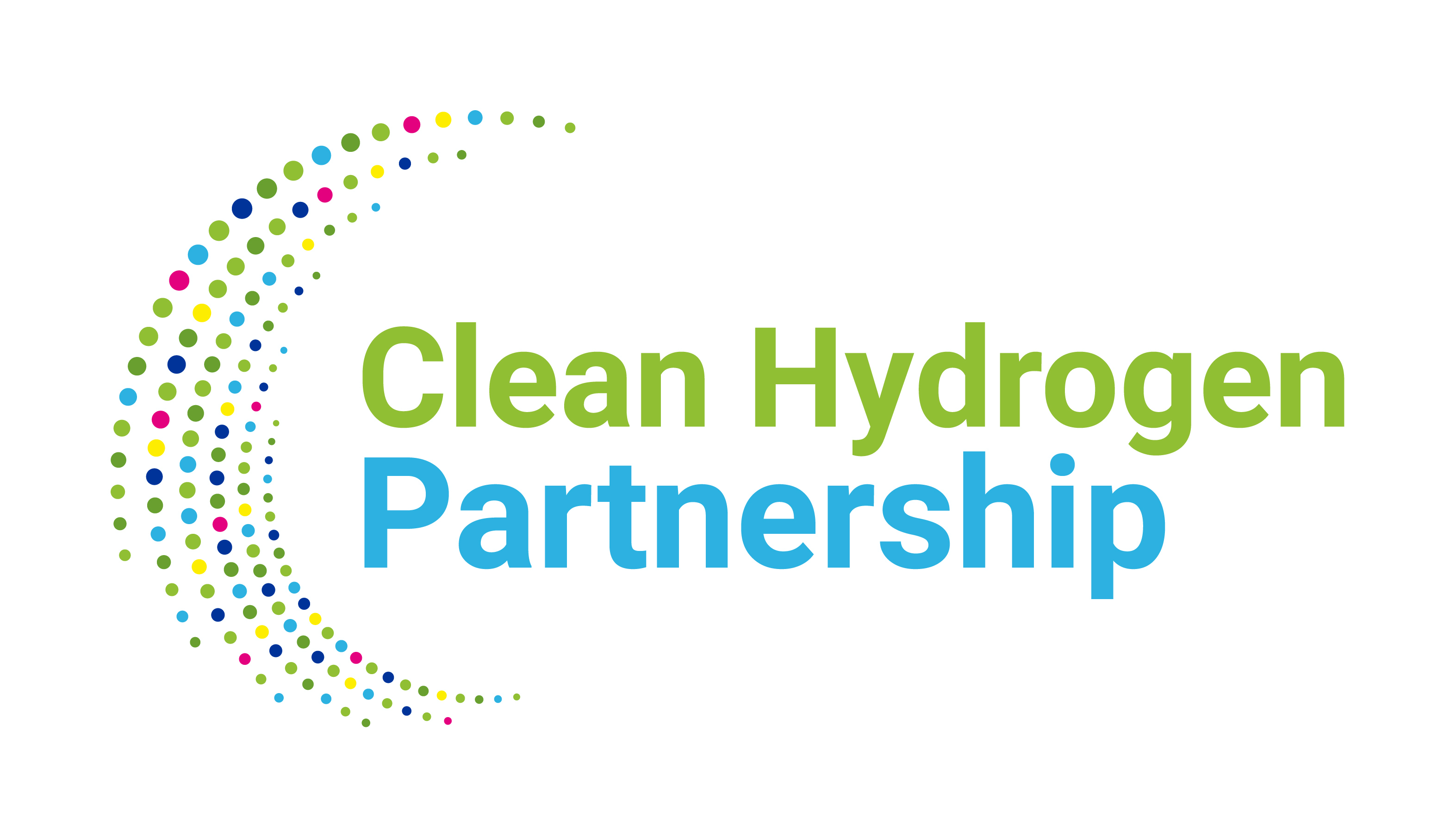
Germany: First Taxi Company in Hesse to Use Fuel Cell Vehicles
The company ” ECT Eco Taxi Deutschland GmbH” , founded in 2014, uses environmentally friendly vehicles for taxi operations in Wiesbaden.
The managing directors Conrad Quaynor and Roman Marx have now presented the first two Hyundai ix35 Fuel Cell, which have been purchased together with a cooperation partner.
These hydrogen-powered electric vehicles are part of the 17-passenger H2 / hybrid taxi fleet. This makes the company the first taxi company in Hesse to use fuel cell vehicles.
The Hessische LandesEnergieAgentur (LEA) and the Hydrogen and Fuel Cell Initiative Hessen eV (H2BZ Initiative Hessen) accompany this step.
The LEA at HA Hessen Agentur GmbH – commissioned by the Hessian Ministry of Economic Affairs, Energy, Transport and Housing – supports the H2BZ Initiative Hessen. Secretary of State Jens Deutschendorf knows about the advantages of innovative technologies for the state of Hesse: “Hessen has the ambition to be the pioneer of the traffic revolution.” The fuel cell is a technological solution for the sustainable mobility of the future. “I am pleased that a Hessian taxi company gives her the opportunity to prove yourself in daily operation. “
The Hessian state capital Wiesbaden is one of the oldest spas in Europe and is known for its health-promoting thermal and mineral springs. The spa guests and weekend tourists stroll through the city center and enjoy the relaxed atmosphere in the numerous cafes and restaurants. Conrad Quaynor is convinced that “Eco Taxi” has taken the right path: “Whether our hybrid or the new hydrogen vehicles – we drive quietly, so we turn off the noise nuisance factor.” This is important to us. Wiesbaden is the first taxi company to use hydrogen. “
Initially, “Eco Taxi” started with the aim to build an environmentally friendly hybrid taxi fleet. This goal has evolved over the years towards the establishment of a zero emissions service fleet. “In addition to battery electric cars, we will mainly use e-vehicles that run on hydrogen, so we will have about 1,920 emissions per year per hydrogen vehicle, compared to a conventional diesel vehicle that is usually used as a taxi Kilograms of CO 2, according to a calculation by Arqum GmbH, “explains Roman Marx . This is not all. Diesel engines also cause harmful pollutant particles and nitrogen oxides, which are thus avoided.
In the Rhine-Main area there are about 2,800 taxis. This trade lends itself to the use of alternative drives. In this area, the hydrogen filling station infrastructure will be further expanded. Fuel cell vehicles have a refueling time of up to five minutes – comparable to the familiar refueling time of a passenger car with an internal combustion engine.
“This is a significant advantage compared to a battery-powered vehicle. Time equals money for a taxi company. With a range of up to 600 kilometers a fuel cell car offers the same advantages as a previously employed taxi,” said Dr. Heinrich Lienkamp (Chairman of the H2BZ Initiative Hessen), “With ‘Eco Taxi’ from Wiesbaden we have a new, young and active member who supports the goals of the Hydrogen and Fuel Cell Initiative Hessen in return for the network of representatives from companies, politics and research as well as the H2BZ office important strategic consulting and support in the use of innovative hydrogen and fuel cell technology, we are very pleased to welcome ‘Eco Taxi’ as a new member. “
Marx and Quaynor have clear ideas about what the future of the still young company will look like. Quaynor explains: “We will bring more supporters to the company in the long term, and Eco Taxes in other regions will outweigh the benefits of an emission-free fleet of hydrogen, so we are a member of the H2BZ Initiative Hessen network and the Fuel Cells Working Group Vehicles actively involved. ” Marx: “We want to use our example to motivate others to use alternative drive systems.”














